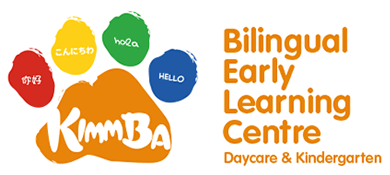Eight skills predict a child’s test outcome

Children who have mastered eight core skills when they start their first year of school have a greater chance of success in primary-age tests of reading, writing and maths, a national analysis of 2500 students has revealed.
A study by the government-funded Australian Education Research Organisation (AERO) found children who have certain skills before starting school – including being able to count to 20, write their name and match letters to sounds have a head start on peers and achieve higher results in year 3 NAPLAN tests. The report underscores the need to renew efforts to identify children at risk of falling behind, said AERO head Jenny Donovan, who called for a national standardised screening test in the first weeks of school.
“Students who already have key skills as they start formal schooling have a greater chance of success in national tests than those from similar socio-economic backgrounds,” she said. “The sooner we target children who are more likely to slip behind, the better their outcomes.”
The study analysed data from 2459 children, linking results from the Australian Early Development Census (AEDC) with NAPLAN performance. It showed that year 3 students who had the foundational skills whey they started school could be two to three terms ahead of those who didn’t.
The census assesses 26 cognitive skills, but the AERO report pinpoints eight linked with higher scores in year 3 numeracy, writing and reading tests. These include: recognising numbers on to 10; reading complex words, counting to 20; remembering things easily; attaching sounds to letters; using on-to-one correspondence; writing their name; and being aware of writing directions.
One in three Australian children failed to meet new proficiency benchmarks in NAPLAN results released last month, while a new longitudinal analysis of test results shows year 3 children who have fallen behind in reading and maths are unlikely to catch up throughout their schooling.
The AERO report, which looked at children who started full-time school in 2009, builds on previous analysis of the connection between AEDC data and NAPLAN, but for the first time has included writing tests as part of the study.
It comes as Victorian and NSW governments are lifting investment in preschool education, while the Productivity Commission is due to release a draft report into early childhood education and care in November.
Professor Leslie Loble, co-chair of the Centre for Policy Development’s early childhood development initiative, said the report confirmed that children with a strong start in life were well set up for the future, while those who start school behind often struggle to catch up.
“It underscores the lifelong benefits of a high-quality universal early childhood education and care system,” she said, adding that Australia has a well-regarded Early Years Learning Framework that guides educators in teaching concepts and skills in an age-appropriate and play-based way. Despite this, Loble believes the nation needs to get better at measuring children’s progress while they’re in early childhood services.
Community Early Learning Australia chief executive Michele Carnegie said the best preschool programs didn’t just focus on academic skills, but supported children to be socially and developmentally ready for the school environment.
Director of Kimmba Bilingual ELC in inner Melbourne Marisha, who did not want her surname used, said kinder was more about preparing children for school rather than sitting down lessons. Children at Kimmba, all of whom are multilingual, cover academic concepts through play.
